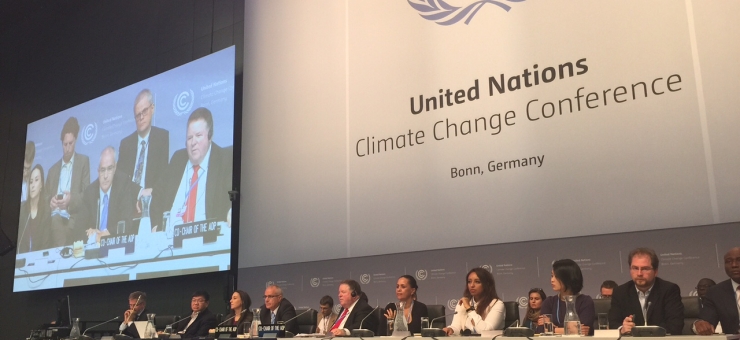News
UNFCCC talks in Bonn: the climate deal needs to be done with workers not without them

Bonn, 23 October 2015 – the last week of negotiations before COP21 in Paris has seen a heated debate between rich and poor countries and the weakening of the text for workers.
The language on “a just transition for workers and decent jobs” which was part of the second operational paragraph of the draft Paris agreement may now only figure in the preambule.
For Philip Jennings, General Secretary of UNI Global Union, “The Paris Agreement needs to be done with people, not without them. Workers and unions have a critical role to play to put our economies on a just transition towards a low carbon economy and that needs to be reflected in the core text. Inclusive growth starts with including workers into the agreement that will shape the future of our planet.”
“The Paris agreement may only enter force in 2020 and only mentions long-term commitments. But we need immediate action. The poorest people are already suffering from the impacts of climate change. We must take our responsibilities instead of postponing action to the next generations. The Paris agreement must send a strong political signal in terms of urgency to ensure a strong implementation at the national level. And that’s where unions play a critical role. In every country, employees, employers and governments need to seat at the table and plan a just transition towards a low carbon economy.”
The lack of ambition of the draft text is worrying. Quantified targets need to be inserted back into the text. The long term goal of staying below 2 or 1.5°C of global temperature increase can only be met if we also aim for carbon neutrality by 2100 and if countries commit to drastic emission reductions. 95% of the countries have submitted their pledges, with the notable exception of oil-producing countries but the total doesn’t add up. The current level of commitment would take us to at least a 3°C temperature increase, with the potential of creating irreversible impacts and loss for livelihoods, communities and workers.
A new report entitled “Making a Killing: Who Pays the Real Costs of Big Oil, Coal and Gas?” released in Bonn by the Carbon Levy Project questions the world’s biggest fossil fuel companies making billions in profits without paying for any of the climate damage their product is causing. In November 2013, the deadly Typhoon Haiyan (Yolanda) blasted the Philippines, killing more than 7300 people and forcing four million from their homes. The damage was estimated to be around $10 billion. Chevron’s profits in 2013 were $21.4 billion.
The Philippines are also chairing the Climate Vulnerable Forum which brings together the “V20” twenty countries that are the most vulnerable to climate change. For them, staying below 1.5°C is a question of survival.
At the closing of the UNI Finance World Conference in Antalya, finance unions are also asking the banks to urgently invest in the low carbon economy.
Contacts in Bonn:
Elise Buckle, UNI Global Union Communications Coordinator, Climate
elise.buckle@uniglobalunion.org , +41 79 278 48 90

